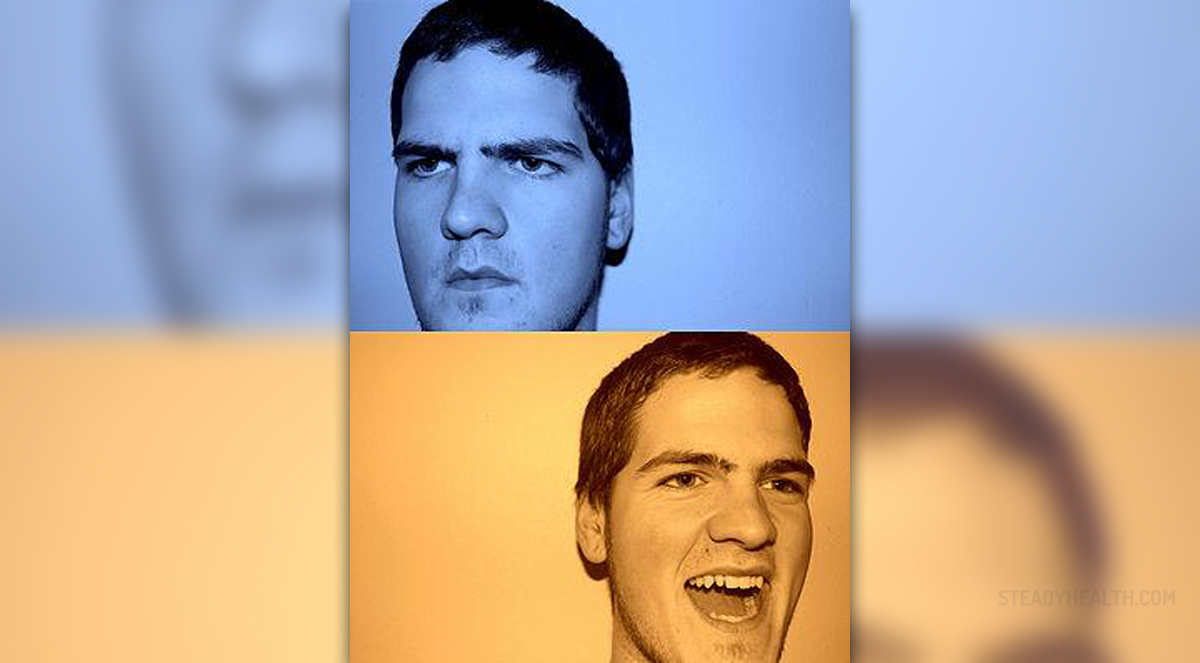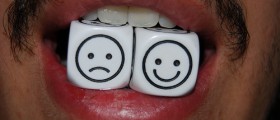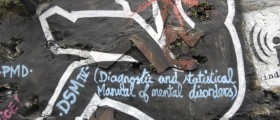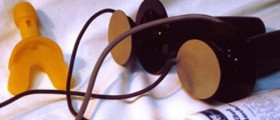
Before it actually got named bipolar personality disorder, this condition was referred to as manic depression, due to the fact that it manifests through episodes of hyperactivity and depression, appearing one after another. Since the elevated mood, activity and energy levels are typical symptoms of mania, the name was derived from its connection with bouts of depression.
Depending on the severity and characteristics of bipolar disorder, it is divided into several subtypes. However, in most patients the main symptoms change from depression to mania and vice-versa, sometimes even intertwined with episodes of regular behavior and mood.
Bipolar Disorder Diagnosis
This condition usually appears during adolescence or young adulthood. Namely, certain experiences that the affected person has gone through may be the triggers of this disorder. Either way, during the extreme episodes related to bipolar disorder, a person may be prone to hurting others as well as him/herself, especially during depressive episodes. In such cases, this condition is very dangerous. However, on the other hand, some people suffering from bipolar disorder may become creative and tenacious, striving towards the positive achievements of their goals.
Due to some of the characteristics of this disorder, genetic factors are taken into consideration during diagnosis too, along with certain environmental triggers which can be connected to the development of this problem.
Some of the signs and symptoms that health experts try to find during the process of diagnosis of bipolar disorder are, first of all, the poles, being the variations between the above mentioned extremes of mood and behavior. Yet, due to the fact that these may be very hard to notice, the diagnosis can be quite a challenging event.
Bipolar disorder is best to be diagnosed during its early onset, during the adolescent years. Nevertheless, bipolar disorder may be misdiagnosed for major depression, this commonly leading to a wrong type of treatment and therapy and absence of recovery.
Some of the most common characteristics of mania are avoidance or absence of sleepiness and sleep, pressured speech, elevated libido levels, conduct which is not mature or controlled, grandiosity and problems with the thought patterns without other symptoms which indicate psychosis.
Psychiatrist Can Help with Bipolar Disorder
Many occurrences of bipolar disorder require hospitalization as a necessary step towards treatment and recovery, especially if the affected individual shows signs of bipolar I mania. The process of hospitalization may be voluntary or involuntary, depending on the mental state of the patient and the severity of the symptoms.
The main form of treatment for this condition is psychotherapy, which focuses on dealing with the core symptoms of bipolar disorder, diagnosing the triggers of the episodes which signify the presence of this disorder, reducing the effects of these episodes and helping the patient to overcome his/her problems, learning how to control and maintain bipolar disorder.
Once the condition is adequately diagnosed, proper treatment methods are put to action. Cognitive behavioral therapy, family-focused therapy and psychoeducation have proven to be the best possible ways of controlling and treating bipolar disorder. In fact, cognitive behavioral therapy is the primary treatment tool against the depression episodes and removal of their symptoms.
Most of the research has been concentrated on treatment of bipolar I disorder subtype, being the most common occurrence of this behavioral disorder. The psychotherapy is commonly connected to medication therapy, where special drugs are given to the sufferers, helping them control and overcome the symptoms of bipolar disorder more successfully.
Even though treatment effects for current therapy methods are not so successful, medical experts hope that, in the future, we will be more capable of dealing with bipolar disorder. Nevertheless, the importance of the relationship between the psychiatrist and the patient cannot be denied. In fact, the treatment for bipolar disorder requires assistance of many different branches of medicine, including psychology, psychiatry, neuropsychiatry and general medicine.
Psychotherapy allows the therapist to gain detailed insight into the condition of the patient, diagnosing the disorder properly and developing a treatment plan suitable for every patient as an individual. However, it is best to find a psychiatrist who is specialized in this disorder, since this individual possesses all the necessary knowledge and experience required for the successful treatment of any bipolar patient. Usually, one mental health expert directs the patient to another, more specialized health practitioner, once all methods of treatment have been proven unsatisfactory. Nevertheless, a team of professionals usually works together, monitoring the progress of the patient and suggesting new treatment methods.
All in all, psychiatrists play a very important part in the process of treatment of bipolar disorders, regardless of their type. People who suffer from these conditions cannot function correctly, even though they might manage to control the depressive and manic episodes enough to get by. Therefore, hospitalization and professional treatment are necessary for any successful, long-term results.
If you notice the symptoms of bipolar disorder in someone you know, do not hesitate to recommend medical assistance. By doing this, you will be helping this person find the best possible treatment.

















Your thoughts on this
Loading...